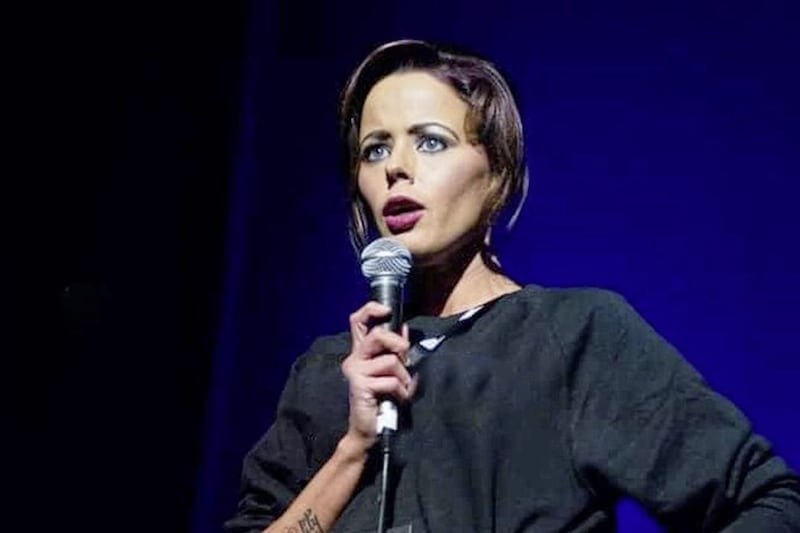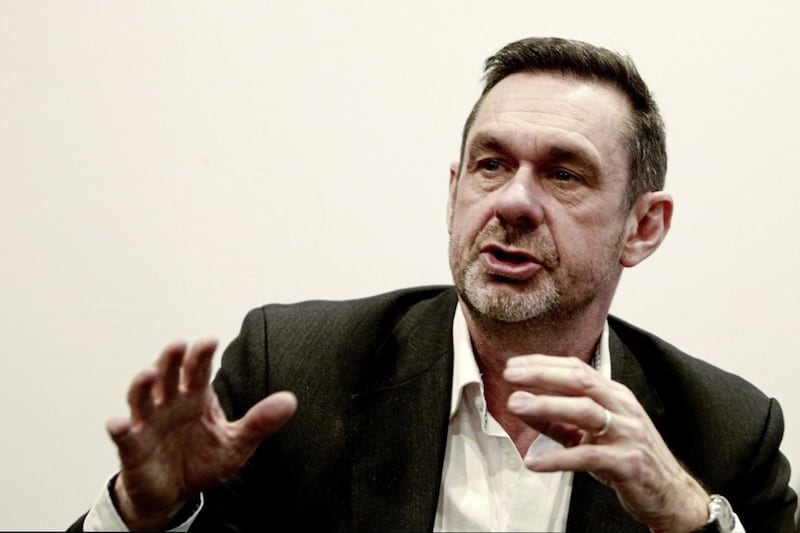BRACE yourselves, Belfast, Peter Hitchens will be in town next month and is ready to tell us to stop worrying about Russia as one of today’s global threats.
As ‘Marmite’ as they come with regard to his opinions, Hitchens will be speaking at Belfast Imagine Festival of Ideas and Politics on Sunday March 18.
The Mail on Sunday columnist and author used to be a foreign correspondent in Moscow and Washington. A panel regular on current-affairs programmes including the BBC’s Question Time, Hitchens is known for often unfashionable views, forthrightly and uncompromisingly delivered, much like his journalist brother Christopher, who died in 2011.
Our relationship with Russia is a long way down the list of priorities for many people in the north, especially in the context of the current lack of progress in getting the Stormont executive up and running again and with Brexit looming.
So why does Hitchens think that we in Belfast should trust Russia more?
“The whole current attitude to Russia from the European nations and North America is verging on the insane,” he says. “It’s a ridiculous, over-estimation of Russia’s power and an attribution to Russia of motives that seem to me that don’t even exist and certainly can’t be proved.
“It’s quite possible that the next European war will be based on this misunderstanding of Russia, so it’s not the case of being more welcoming to Russia, more of case of just leaving it alone. We have no border with Russia, we dispute no seas, we barely trade with one another and don’t have any shared interest or disputed territories over which to quarrel, so there’s absolutely no reason for us to have anything more interest other than polite foreign relations.”
Mind you, Hitchens was speaking to The Irish News prior to this week’s suspected poisoning of ex-Russian spy Sergei Skripal and his daughter in England.
Apart from spending a considerable time on Twitter (where he follows no-one) defending and explaining his views, Hitchens says he is one of the few commentators in the UK who is genuinely interested in politics here.
An atheist turned Christian later in life, he says calling the Good Friday Agreement by that name is “faintly blasphemous” and resolutely refers to it as the Belfast Agreement of 1998 – a peace process landmark he was opposed to.
“One of the most baleful effects of the 1998 agreement was that it rewarded extremists,” he tells me.
“I think what could be called old-fashioned gentlemanly unionism died in 1998, pretty much as the same time as old-fashioned, civil, peaceful nationalism died in 1998. Provisional Sinn Fein, as I will always call it, will be forever linked with the fact that it had an armed wing.
“As someone who genuinely sympathises with both sides on this matter, the fundamental problem with any kind of government on the island of Ireland has been a danger of one community being able to lord it over the other.”
Pro-Brexit, he believes that the current debate about a hard or soft border between north and south is over-egged.
“I’ve long advocated the Norway solution as the most practical way around it. Norway and Sweden have a border between them which they manage quite amicably and I don’t think that there is necessarily a need to make a federal case out of it as everyone is doing.”
While he writes about politics and is a former member of both the Labour and Conservative parties, Hitchens says he’s not a political activist.
He adds: “I merely document the decline of my country – I’m the obituarist for Britain,” a reference to his books The Abolition of Britain: From Winston Churchill to Princess Diana (1999) and The Broken Compass: How British Politics Lost Its Way (2009).
Hitchens has just finished his sixth book, The Phoney War, which is expected to be published in the autumn. He takes on the task of debunking some of the legends which have grown up around the British involvement and contribution to the Second World War – and he’s fairly certain he will be very unpopular with readers.
“It’s not going to make me any friends, so I don’t know why I’m written it actually,” he admits.
“But I got so tired of people using the Second World War as a template for arguing for new wars, whether it would be in Iraq, Libya or Syria.
“I began to look back at the Second World War. In fact, not merely is this a bad reason for intervening in Iraq or Libya, but the general idea of what happened in the war and the reasons why it was fought is just wrong.
“It was an ambivalent war as we didn’t beat Germany on our own and ended up forging an alliance with Joe Stalin.
“You cannot claim to be fighting a war of liberation of that kind if your principal ally is Joe Stalin.”
:: Peter Hitchens’ Why We Should Trust Russia, Sunday March 18, Crescent Arts Centre, Belfast, 7.30pm. For tickets and further information see Imaginebelfast.com
IMAGINE BELFAST
IMAGINE Belfast 2018 promises to be an eclectic week of talks, workshops, theatre, comedy, music, exhibitions, film and tours, with more than 80 events on the schedule.
The line-up from March 12 to 18 includes Grammy-nominated singer-songwriter Michelle Shocked, who brings her unique blend of indie, folk, blues and politics to the festival.
Kildare-born stand-up Jarlath Regan’s solo show Organ Freeman also comes to Imagine, fresh from the Edinburgh Fringe, while US activist Carmen Perez – national co-chair of the Women’s March on Washington, which brought more than five million people on to streets across the globe – will provide a keynote speech as part of a series of talks and workshops on the theme of Democracy Day, taking place on March 14.
On March 16 Irish News journalist Allison Morris chairs a panel discussion marking the 50th anniversary of the civil rights movement. There’s also a bus tour of east Belfast Irish place names, a play called Emmet of Arabia about a Derry couple whose son joins Isis, a 20th anniversary screening of Resurrection Man, poetry, hip-hop and even a lecture by a professional magician on how you can utilise Donald Trump’s secret techniques of persuasion in your own life.
:: Full programme at Imaginebelfast.com








